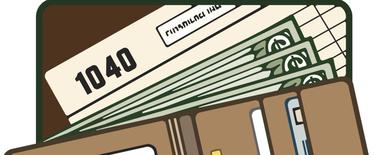Tax Preparation Blog
Wise Tax Ideas
by Tax Master DFW on 10/02/14
Title:
Wise Tax Ideas
Word Count:
484
Summary:
Most people don't really look forward to filing their tax returns and paying their taxes. As it is, there really isn't much to look forward to because it is a tedious process that can take weeks to complete. Some people even have the bad luck to raise the interest of the IRS. The trouble is, most of these people's mistakes are not intentional. They just lack proper tax preparation, and in all probability, must have rushed through the filing process. Lack of preparation and at...
Keywords:
#Arlington_Tax_Preparation, #Tax_Preparation, #Tx_Tax_prep, #Texas_Tax_Preparation, #Arlington_Tax_Prep, #Arlington_TX, #Tax_Prep, #DFW_Tax_Prep, #Tax_Filing, #Taxes, #Lewisville_Tax_Prep, #Lewisville_Tax_Preparation, #DFW_Tax_Preparation, #Arlington, #Tarrant_County, #Reduce_Taxes, #Tax_Refunds, #Pay_Taxes, #Tax_Help, #Bookkeeping, #DFW_Bookkeeping, #Investing, #tax_bookkeeping, #DFW, #Texas, #North_Texas
Article Body:
Most people don't really look forward to filing their tax returns and paying their taxes. As it is, there really isn't much to look forward to because it is a tedious process that can take weeks to complete. Some people even have the bad luck to raise the interest of the IRS. The trouble is, most of these people's mistakes are not intentional. They just lack proper tax preparation, and in all probability, must have rushed through the filing process. Lack of preparation and attention to detail are the most common faults of people who often get flagged by the IRS. Let's face it. Even if audits are not criminal in nature, they are embarrassing and distressing events people can do without.
Filing accurate tax returns and paying correct taxes are not impossible with the right preparation and a good head start. A good head start is important in filing because taxpayers get more lead time to organize and prepare the necessary documents. Even if there are lots of tax software available, it is a wise idea to allot a significant amount of time in reviewing past returns, current returns applications, and tax laws. Tax laws are dynamic; they can be changed or revised between the last tax season and the one coming up. There might be some important things in the revised policies that can affect your returns and deductions. Pleading ignorance of the new policies are not acceptable to the government and the IRS because everybody is presumed to know the law. Taxpayers are recommended to review their current applications especially if they've been audited before. According to the IRS, taxpayers repeating audited mistakes are not uncommon. Speaking of mistakes, "forgetting" additional income sources is the predominant mistake most people make. The IRS also compares issued forms against reported income on the returns for disparity. Still on the issue of disparity and comparison, returns are checked for names and SS numbers so they must mirror those in the SS records. Wrongly issued forms must be returned and reported to the issuer for corrections.
Wrong sums are also common mistakes due to rushing. Though tax software is usually thought of as a late taxpayer's savior, early filers can use this software to check their computations. Tax charges can usually be avoided by printing correct sums on returns. Taxpayers are encouraged to file their returns even if their current financial situation makes them unable to pay their taxes. Installment payment is an option that IRS offers. Tax matters are sensitive and can be subjected to random auditing. It is advised that taxpayers keep and file their returns of six years at the very least for reference if ever they are called for auditing. Lastly, since the agency is the one who gets burdened by tax problems, the IRS is open to giving assistance to taxpayers. With proper preparation, filing tax returns can be an easy process.
Your Appeal Rights When Fighting The IRS
by Tax Master DFW on 10/02/14
Title:
Your Appeal Rights When Fighting The IRS
Word Count:
363
Summary:
Are you in the middle of a disagreement with the IRS? One of the guaranteed rights for all taxpayers is the right to appeal. If you disagree with the IRS about the amount of your tax liability or about proposed collection actions, you have the right to ask the IRS Appeals Office to review your case.
Keywords:
#Arlington_Tax_Preparation, #Tax_Preparation, #Tx_Tax_prep, #Texas_Tax_Preparation, #Arlington_Tax_Prep, #Arlington_TX, #Tax_Prep, #DFW_Tax_Prep, #Tax_Filing, #Taxes, #Lewisville_Tax_Prep, #Lewisville_Tax_Preparation, #DFW_Tax_Preparation, #Arlington, #Tarrant_County, #Reduce_Taxes, #Tax_Refunds, #Pay_Taxes, #Tax_Help, #Bookkeeping, #DFW_Bookkeeping, #Investing, #tax_bookkeeping, #DFW, #Texas, #North_Texas
Article Body:
Are you in the middle of a disagreement with the IRS? One of the guaranteed rights for all taxpayers is the right to appeal. If you disagree with the IRS about the amount of your tax liability or about proposed collection actions, you have the right to ask the IRS Appeals Office to review your case.
During their contact with taxpayers, IRS employees are required to explain and protect these taxpayer rights, including the right to appeal. The IRS appeals system is for people who do not agree with the results of an examination of their tax returns or other adjustments to their tax liability. In addition to examinations, you can appeal many other things, including:
1. Collection actions such as liens, levies, seizures, installment agreement terminations and rejected offers-in-compromise,
2. Penalties and interest, and
3. Employment tax adjustments and the trust fund recovery penalty.
Internal IRS Appeal conferences are informal meetings. The local Appeals Office, which is independent of the IRS office, can sometimes resolve an appeal by telephone or through correspondence.
The IRS also offers an option called Fast Track Mediation, during which an appeals or settlement officer attempts to help you and the IRS reach a mutually satisfactory solution. Most cases not docketed in court qualify for Fast Track Mediation. You may request Fast Track Mediation at the conclusion of an audit or collection determination, but prior to your request for a normal appeals hearing. Fast Track Mediation is meant to promote the early resolution of a dispute. It does not eliminate or replace existing dispute resolution options, including your opportunity to request a conference with a manager or a hearing before Appeals. You may withdraw from the mediation process at any time.
When attending an informal meeting or pursuing mediation, you may represent yourself or you can be represented by an attorney, certified public accountant or individual enrolled to practice before the IRS.
If you and the IRS appeals officer cannot reach agreement, or if you prefer not to appeal within the IRS, in most cases you may take your disagreement to federal court. Usually, it is worth having a go at mediation before committing to an expensive and time-consuming court process.
Tax, Tax And More Tax. What A Bummer! Here's How To Handle It.
by Tax Master DFW on 10/01/14
Title:
Tax, Tax And More Tax. What A Bummer! Here's How To Handle It.
Word Count:
675
Summary:
When you run a business, it can feel like you spend far too much of your time worrying about tax. Here's a quick guide to the what you need to know about tax.
What Do You Qualify For?
There are all sorts of tax breaks for home and small businesses, to try and make it easier for them to survive. To qualify for them, though, you will need to be using your home as the primary place where you do business. If most of what you do takes place in some space elsewhere that you r...
Keywords:
#Arlington_Tax_Preparation, #Tax_Preparation, #Tx_Tax_prep, #Texas_Tax_Preparation, #Arlington_Tax_Prep, #Arlington_TX, #Tax_Prep, #DFW_Tax_Prep, #Tax_Filing, #Taxes, #Lewisville_Tax_Prep, #Lewisville_Tax_Preparation, #DFW_Tax_Preparation, #Arlington, #Tarrant_County, #Reduce_Taxes, #Tax_Refunds, #Pay_Taxes, #Tax_Help, #Bookkeeping, #DFW_Bookkeeping, #Investing, #tax_bookkeeping, #DFW, #Texas, #North_Texas
Article Body:
When you run a business, it can feel like you spend far too much of your time worrying about tax. Here's a quick guide to the what you need to know about tax.
What Do You Qualify For?
There are all sorts of tax breaks for home and small businesses, to try and make it easier for them to survive. To qualify for them, though, you will need to be using your home as the primary place where you do business. If most of what you do takes place in some space elsewhere that you rent, then you won't qualify for home business tax rules. You also are unlikely to qualify if you haven't set aside a specific part of your home as the 'business area'. Be prepared for the fact that you might be audited, to make sure that you are running a legitimate business from your home.
Records You Need to Keep.
You need to keep records of everything -- literally everything -- you spend on your home business. You should especially keep records of things when their use might be shared between personal and business, such any business-related travel expenses you run up on your car. If you have stock, you need to go through and inventory it at least once a month.
What You Can Deduct from Your Home Expenses.
Because your home office is in your home, you can claim any tax back that you pay on that part of the home. You can also claim back tax on part of your utility bills. For example, if your home is 2,000 square feet and you use 100 square feet for your home office, you can claim back 5% of your utilities. If you rent, then you can claim back this percentage of the rent, and if you have bought the house then you can claim it as a discount off your mortgage interest. Any equipment you have that depreciates (becomes worth less) because you use it in your business may also be eligible for a tax deduction.
Self-Employment Taxes.
When you work from home, you are legally self-employed. This can put you in a sticky situation, meaning that you have to pay for medical and other taxes that your employer would normally pay for you. In the US, for example, you will be responsible for your own social security and Medicare payments, while in the UK you will need to pay national insurance.
Get Tax Software.
If you're not sure where to begin, get some tax software. Choosing your circumstances from its lists and giving any additional information it asks for should show you most of the tax rules that apply to you.
Get a Professional Bookkeeper from Tax Master DFW
If you want to save as much as you can on your taxes, don't rely on things you read on the Internet, or even on computer software -- get an accountant. They'll be up-to-date with all the latest tax laws, and will know thousands of tips and tricks that there's no space to list here. See if you can find one who will take a percentage of what they save you in tax as payment instead of charging a flat fee -- this is an ideal solution for you and for them.
Do Your Taxes Online.
Most developed countries now give the option to do your taxes online, eliminating a big paperwork headache. You may even find that your tax software can send its tax report directly to the online service, without you doing much more than clicking a button. Of course, if you do things this way, be sure to call and confirm that everything went through alright.
Don't Be Late.
Whatever you do with your taxes, you absolutely must not file them late or pay them late. It's an all-too-easy trap to fall into, but there are automatic fines. Tax collection agencies will look upon you very unfavorably if you pay late, and are likely to start immediately charging interest on any money you owe them. Write your tax dates on your calendar and underline them in red. Twice.
Tax Advice: Middle Class Tax Shelters Everyone Can Use, Many Don’t
by Tax Master DFW on 10/01/14
Title:
Tax Advice: Middle Class Tax Shelters Everyone Can Use, Many Don’t
Word Count:
756
Summary:
Tax benefits from home ownership come in the form of deductions. It's better to put your money into a house that you own than into a rent check you never see again. Financing your home can save money on your next tax return and so can the purchases made using money received from refinancing a mortgage.
Keywords:
#Arlington_Tax_Preparation, #Tax_Preparation, #Tx_Tax_prep, #Texas_Tax_Preparation, #Arlington_Tax_Prep, #Arlington_TX, #Tax_Prep, #DFW_Tax_Prep, #Tax_Filing, #Taxes, #Lewisville_Tax_Prep, #Lewisville_Tax_Preparation, #DFW_Tax_Preparation, #Arlington, #Tarrant_County, #Reduce_Taxes, #Tax_Refunds, #Pay_Taxes, #Tax_Help, #Bookkeeping, #DFW_Bookkeeping, #Investing, #tax_bookkeeping, #DFW, #Texas, #North_Texas
Article Body:
Many people lose money for years to landlords because they mistakenly believe they cannot afford to buy a home. However, in most cases, these renters are where they are only because they are unaware of all their other options. Most people know that it's better to put your money into a house that you own than into a rent check you never see again. Some are aware that mortgage payments could actually be fairly close to what they currently pay in rent.
What few people realize are the tax benefits stemming from owning a home can actually save them hundreds of dollars each month. After taking into account these additional savings, which would you choose: giving up a large chunk of your paycheck each month to a landlord for a small apartment, or, for significantly less money, having not just your own home, but also the freedom to take your money out again in the future?
<b>How Tax Benefits Work</b>
Tax benefits from home ownership come in the form of deductions. Come tax time, the amount of money you spent on tax-deductible expenses related to your home financing (many of which are outlined below) is subtracted from the total amount of taxes you owe. Depending on how much you owe and how much you put into your home over the course of a year, home financing could actually result in zero tax liability. That means that your new home may actually bring you a refund check!
For example, assume you owe $12,000 in taxes for the past year, and your mortgage payment is $1,000 per month. In the early years of a mortgage, payments are usually almost entirely for the interest you owe on your home loan. Mortgage interest payments are tax-deductible, so from this one deduction alone, you now owe $12,000 less in taxes, which brings the total amount you owe the government to zero. If your employer withholds taxes from your paycheck, you will receive a refund check for the tax you overpaid.
<b>Tax Benefits for All Mortgages</b>
- If you own property, then you pay property taxes. These are always fully tax-deductible.
- Points on a home mortgage are fully deductible.
-Tax Benefits for New Mortgages-
- As mentioned earlier, the payments you make in the early years of a home financing loan generally go straight to interest. The principal, or actual amount of the original loan does not start to go down until later in the loan period. This means that early on, you can deduct most, if not all, of an entire year of mortgage payments.
- Both late and early payment fees charged by your lender are considered interest and can be deducted.
- Many tax benefits available in the first year of your mortgage are not available later on. It is always a good idea to go over your situation with an accountant to be sure you do not miss any opportunities for savings. These first-year tax benefits include moving expenses and capital gains.
Tax Benefits for Refinancing a Current Mortgage
- If you are refinancing in order to make improvements to your property, then the interest is deductible. Anything that could reasonably improve your property value from fixing the driveway to adding on an entire new story counts.
- Interest on refinanced mortgages that are taken out for expenses not related to home improvement can also be taken as a deduction, but only within certain guidelines. Currently, the maximum deduction for the life of the loan is $100,000. (Married couples filing separately each have a maximum of $50,000.)
- Points on a refinanced home mortgage are still tax-deductible in most cases.
Benefits Beyond Tax Savings
No one would complain over having a few extra dollars in their pocket. Not only can financing your home save money on your next tax return, but it can also save money on purchases made using money received from refinancing a mortgage (or simply money not lost to rent). In fact, paying off credit cards after financing can be one of the smartest financial moves you can ever make, especially if you keep those cards paid off.
Consider that even the worst mortgage interest rates can be at least ten or twenty percentage points lower than those for the average credit card. People with poor credit are often better off with a higher mortgage interest rate if it means their other debt can be reduced, thereby bringing their credit score up. After re-establishing their credit, they can then refinance their home at a better interest rate.
Tax Magic: How To Turn Taxable Income Into Tax-Free Income
by Tax Master DFW on 10/01/14
Title:
Tax Magic: How To Turn Taxable Income Into Tax-Free Income
Word Count:
777
Summary:
Believe it or not, there are ways to convert taxable income into non-taxable income, without any fear of an IRS audit.
Here's one of my favorites. It's been part of our tax code for over 30 years, yet many still don't take advantage of it.
What am I talking about?
The IRA -- Individual Retirement Account.
Now, before you say, "Oh, I know all about that one; what's so great about an IRA?", give me 10 minutes to explain 3 new benefits to the IRA rules that you may n...
Keywords:
#Arlington_Tax_Preparation, #Tax_Preparation, #Tx_Tax_prep, #Texas_Tax_Preparation, #Arlington_Tax_Prep, #Arlington_TX, #Tax_Prep, #DFW_Tax_Prep, #Tax_Filing, #Taxes, #Lewisville_Tax_Prep, #Lewisville_Tax_Preparation, #DFW_Tax_Preparation, #Arlington, #Tarrant_County, #Reduce_Taxes, #Tax_Refunds, #Pay_Taxes, #Tax_Help, #Bookkeeping, #DFW_Bookkeeping, #Investing, #tax_bookkeeping, #DFW, #Texas, #North_Texas
Article Body:
Believe it or not, there are ways to convert taxable income into non-taxable income, without any fear of an IRS audit.
Here's one of my favorites. It's been part of our tax code for over 30 years, yet many still don't take advantage of it.
What am I talking about?
The IRA -- Individual Retirement Account.
Now, before you say, "Oh, I know all about that one; what's so great about an IRA?", give me 10 minutes to explain 3 new benefits to the IRA rules that you may not realize.
BENEFIT #1: How To Avoid Tax Rather Than Postpone Tax
First, did you know that there are now 2 kinds of IRA's available?
The so-called Traditional IRA is the one that first came out way back in the 1970's.
But there's a newer version of the IRA that's only a few years old -- it's called the Roth IRA. And the difference between these 2 IRA's is huge.
Traditional IRA contributions are tax-deductible, resulting in immediate tax savings. The growth of those contributions is also tax-sheltered while the funds remain in the account.
But eventually all tax-deductible Traditional IRA contributions, as well as the growth of those contributions, will be subject to income tax when the money is withdrawn from the account.
In other words, Traditional IRA's offer the opportunity to temporarily postpone taxes.
In contrast, the Roth IRA offers the opportunity to permanently avoid taxes. With a Roth IRA, you don't take a deduction for your contributions; instead, you make a contribution with "after-tax" dollars.
Whatever you put in not only grows tax-free, but can also be withdrawn tax-free.
Here's an example to illustrate:
If you invest $2,000 per year for 20 years into a Roth IRA, you will have invested a total of $40,000. Now if that Roth IRA earns an average of 10% per year, that $40,000 will grow into $126,005.
Now comes the fun part: Assuming the IRA has existed for at least 5 years and you are at least 59 ? years old, you can withdraw the entire $126,005 tax free.
In contrast, if this money had been invested in a Traditional IRA, the entire $126,005 would be subject to income tax as it is withdrawn.
The $86,005 of growth is magically converted from taxable income to non-taxable income. Assuming you are in the 15% federal tax bracket, that's a savings of $12,901. Add any state income tax, and you could save over $15,000 in taxes.
BENEFIT #2: Take An Extra 3 ? Months To Fund Your IRA
The deadline for contributing to your IRA is April 15 of the year AFTER the year for which the contribution made.
So for Year 2005, you have until April 15, 2006 to put money into your IRA.
If you've already invested the maximum (more about that in a moment) by December 31, 2005, then you're done. No more money can go into the IRA for 2005.
But if you haven't maxed out your IRA, you have until April 15 to do so.
Which brings me to . . .
BENEFIT #3: The Maximum Contribution Amounts Have Increased
For many years, the most you could put into an IRA was $2,000. Now, the maximum is $4,000 (assuming you have at least that much earned income from wages or self-employment income).
And if you are over 49, you can put in another $500, bringing the total maximum to $4,500.
A married couple, both age 50 or older, can put a whopping $9,000 per year into a IRA. Not too shabby, eh?
One final note about these Roth IRA rules: For married people, you can only contribute the maximum of $4,000 or $4,500 if your combined income is less than $150,000.
If you are single or head of household, you can contribute the maximum if your income is less than $95,000.
For most middle-class folks looking for a perfectly legal way to permanently avoid tax (rather then merely temporarily postpone tax), the Roth IRA fits the bill.
Now comes the hard part -- how to actually implement this tax avoidance strategy.
"We'd like to save as much as we can for our golden years. But $9,000 a year? It's hard to put aside that kind of money. We need every dollar we make just to pay the bills."
If that's your situation, I'm not going to get up on my "what-do-you-mean-you-can't-save-any-money-for-retirement" soapbox and start preaching at you.
I will say this: You've got to start somewhere, and you've got to start saving something, don't you?
People who have a problem saving for retirement usually have a budgeting problem. For an excellent resource on budgeting, I highly recommend the Budget Stretcher web site:
http://www.homemoneyhelp.com.
This site offers a free budget system complete with simple forms and worksheets to help you figure out how to put some money aside for a Roth IRA or other savings plan.
Take advantage of this resource and get started today.








